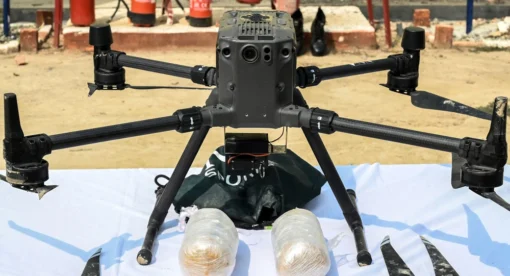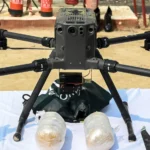Tehran sees an opportunity to accelerate the departure of U.S. forces.
A recent intelligence leak indicates that Iran-aligned militias have been beefing up their strike capabilities against U.S. forces in eastern Syria. They are reportedly preparing for more drone and rocket attacks and are testing sophisticated explosive devices such as EFPs (explosively formed penetrators) for use against U.S. convoys. This corresponds with intelligence published earlier this year in The Washington Post that a joint center for the Syrian army, the Islamic Revolutionary Guard Corps and other militias linked to Iran, as well as Russian forces, is coordinating activity against U.S. forces in northeastern Syria.
Washington has been engaged in tit-for-tat strikes against Iranian militias for years, but Tehran’s renewed strategy is notable for the questions it raises about Iran’s broader strategy toward the U.S. in the region. And as its nascent reconciliation with former foes such as Saudi Arabia – ostensibly a U.S. ally – shows, that strategy is much less risk averse than it once was.
Over the past three years, successive militia strikes against U.S. forces have put pressure on the mission in Iraq and Syria. After a period of heightened tensions following the killing of IRGC commander Qassem Soleimani, the U.S. reduced its presence in the region, maintaining just 2,500 troops in Iraq and 900 in Syria, transferring many of its bases to Iraqi and Kurdish forces, and formally reclassifying its mission as an advise-and-assist operation.
The drawdown is in keeping with Washington’s long-term objective to disengage from the Middle East and concentrate on Russia and China. It’s also in line with public opinion. Continued strikes and mounting casualties have renewed the debate about having boots on the ground. Legislative pushes reassessing deployments under the 2001 and 2002 Authorization for the Use of Military Force in Iraq and Syria have gained greater traction in recent years; the most recent initiative in March to withdraw all U.S. forces from Syria in under 180 days was ultimately voted down 321-103 in the U.S. House of Representatives.
Read the rest in Geopolitical Futures.













